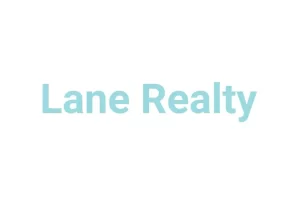Disclaimer: This content is provided for educational and entertainment purposes only and does not constitute professional advice. We do not guarantee the accuracy or completeness of any information presented. We are not liable for any actions taken based on this content. For specific issues or decisions, we recommend seeking professional advice.
Are you considering getting a home equity loan for renovating your home or purchasing an investment property? Whatever the reason, a home equity loan can tide you over for a few months, especially if you opt for a short-term loan.
Regarding the requirements, you might wonder how important your employment is when seeking a home equity loan.
This blog will discuss how and why your employment status is important when looking for a home equity loan. But before we get into that, let us understand a home equity loan.
What is a home equity loan?
A home equity loan is a kind of loan that you get against the equity of your home. You can use your home’s equity as collateral and borrow money against that. A home equity loan is also known as a second mortgage.
The borrowing amount is based on the equity you are keeping as collateral and the value of the property, among other minor factors.
People usually go for this loan to renovate their home, purchase an investment property, pay a large sum, invest in public-listed shares or pay a debt.
The rate of interest for a home equity loan is decided based on the following factors:
- Income
- Employment
- Debt to income ratio
- Credit score
- The equity ratio you have in your home
The following are some benefits of going for a home equity loan as compared to other loans for the same purpose, such as personal loans:
- Home equity loans are easier to qualify for as they involve collateral. You may be eligible for this loan even with a weak credit score.
- These loans help you in exploiting the idle value of your asset.
- They offer fixed interest rates so you can manage your savings and expenses accordingly in advance.
- The loan amount is paid in a lump sum, so you do not have to wait for any instalments.
How important is your employment when seeking a home equity loan?
As we saw that, income and employment, two correlated factors, are important to decide the rate of interest in your home equity loan.
From the point of view of the lender, it is evident that they want to put their money somewhere secure. They are unlikely to give a loan to an unemployed person as that reduces the chances of full repayment. Their demand for security can be met with individuals employed at a good position in a reputed company, earning a good sum of money.
The lender will ask for the borrower’s income history for at least the past two years. The borrower must share their tax return or pay stubs with the lender. In case the borrower is self-employed, the lender will serve as for profit and loss statements for the last two years.
Based on this, they decide whether you can repay the loan or not. If you are unemployed and looking for a home equity loan, there is a high chance you might not get the loan.
The following are some reasons why the lender insists on your employment status:
- The status of your employer company is the main factor to inspect for the lender. If you are working in a reputed company, it means that the company is not likely to close down any time soon. So you will retain your financial security and be able to repay the loan on time.
- If you are working in a low-grade company that is facing financial challenges or is likely to face financial problems, it is at risk of being shut down. This means you could lose your source of income and be unable to repay the loan along with interest as per the terms and conditions.
If you are in a good position in a reputed organisation, you might even be able to enjoy some perks. These extra benefits are offered to lure advantageous clients in from reputed companies. These perks may include a favoured interest rate, a longer term for the home equity loan repayment, a higher amount for the loan or an exemption from fees for the loan.
Conclusion
When you think about how important your employment is when seeking a home equity loan, you should know that one of the first things a lender checks is how much you earn. Your income may also decide the interest rate at which you get the loan. Only when a lender is satisfied with your income level will they offer you a home equity loan.
Disclaimer: The opinions expressed in this article are the personal opinions of the author. Lanerealty is not responsible for the accuracy, completeness, suitability, or validity of any information in this article. All information is provided on an as-is basis. The information, facts or opinions appearing in the article do not reflect the views of Lanerealty and Lanerealty does not assume any responsibility or liability for the same.
